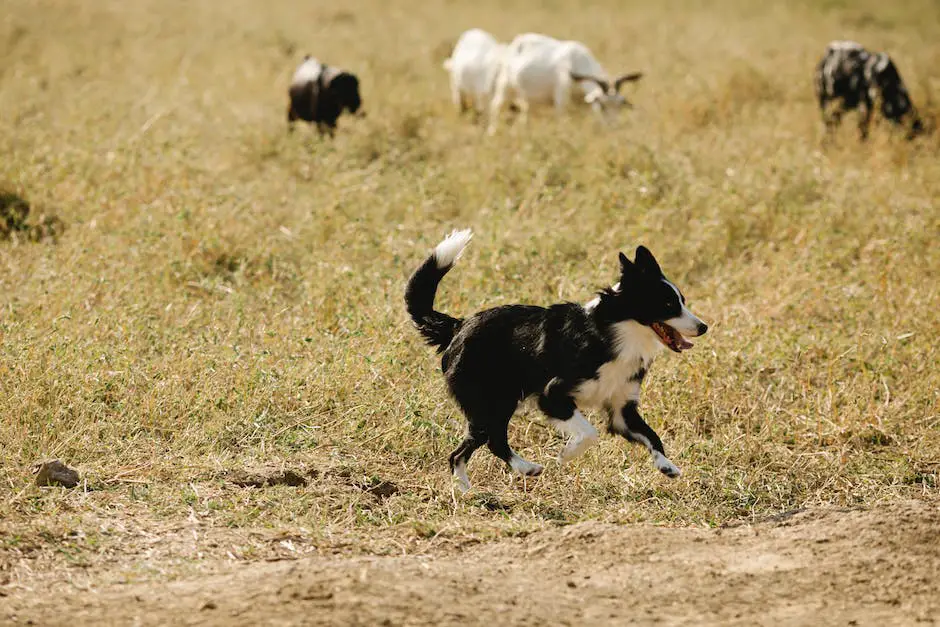Exploring the Coton de Tulear and Poodle Mix: An In-depth Guide
Canines have been a companion of humanity for thousands of years, serving roles from hunters to life partners. Specific breeds have been curated over time to cater to different needs, environments, and preferences of owners. Two such breeds, the Coton de Tulear and the Poodle, carry a rich history, unique characteristics, and distinctive temperament. Over the past few years, a particular crossbreed known as the ‘Cotondoodle’ – a fusion of the Coton de Tulear and Poodle – has piqued interest among dog enthusiasts seeking specific qualities in their pets. This piece will dive deep into understanding these breeds, their blend, and the realities of being a Cotondoodle owner.
Understanding the Coton de Tulear and Poodle breeds
Coton de Tulear: The Fluffy Companion
Originally from the island of Madagascar, the Coton de Tulear is a small breed, known for its cotton-like coat. The coat is predominantly white, but sometimes shows traces of grey or red rusty color around the ears. This is a playful, lively breed that’s full of energy and loves to play. Despite their small size, they are sturdy and robust, typically weighing between 8 to 15 pounds.
The Coton de Tulear is highly sociable and gets along well with other animals and people. This breed is known for its intelligence and it’s relatively easy to train. However, they don’t like being alone for long periods of time, as they’re extremely sociable and crave companionship.
In terms of common health problems, Cotons are generally healthy but have the potential to develop issues such as hip dysplasia, patellar luxation, as well as certain eye and heart disorders. They are also prone to dental disease, so regular dental care is required. Their life expectancy if well cared for is between 14-19 years.
Poodle: A Symbol of Elegance and Intelligence
Poodles are renowned for their elegance and intelligence, originating from Germany but developed as a breed in France. They’re divided into three sizes – standard, miniature, and toy – but all of them possess an intelligent and friendly disposition. They are also one of the top five most intelligent dog breeds in the world, making them highly trainable.
Physically, Poodles are often recognized by their curly and hypoallergenic coats which require regular grooming. They can be found in a variety of solid colors including white, black, apricot, and gray. Depending on their size, their weight can range from less than 10 pounds (Toy) to up to 70 pounds (Standard Poodle).
Poodles excel in obedience training and are excellent with children and other pets. However, they demand a lot of physical and intellectual stimulation.
In terms of health, Poodles are generally healthy but they are predisposed to some conditions like hip dysplasia, progressive retinal atrophy, epilepsy, and several types of skin disorders. With good care and nutrition, their life expectancy is around 10-18 years.
Meet the Coton Poo: A Fascinating Blend of Breeds
Say hello to the Coton Poo, a charming and delightful breed that comes to life when a Coton de Tulear and a Poodle mate. This petite breed usually weighs under 15 pounds, so they are the perfect lap-sized companion.
The Coton Poo is a dreamy combination of the Poodle’s intelligence and the Coton de Tulear’s people-loving personality. This fairy tail mix creates an incredibly smart, sociable, and trainable friend who loves to play and show off their soft, hypoallergenic coat, which takes after both of its parents. However, this also means that they need regular grooming to keep their fur healthy and tangle-free.
Like any breed, the Coton Poo could inherit health conditions from either parent, so it’s essential to schedule regular vet appointments for a healthy life. On average, you can expect a Coton Poo to enjoy a lifespan of 12 to 15 years.
Highly sociable, intelligent, and with a playful flair, the Coton Poo makes the perfect pet for families. Don’t let their size deceive you, as long as they get the physical and mental stimulation they need, they’ll happily adapt to life in an apartment or a house.

The Coton de Tulear-Poodle Mix Breed – Basic Information
Getting to Know the Cotondoodle: Basic Breed Characteristics
Allow us to introduce you to another delightful blend: The Cotondoodle. This hybrid breed is the offspring of a Coton de Tulear and a Poodle. Their size can vary from small to medium, largely influenced by the size of the Poodle parent, one could expect to see a Cotondoodle anywhere from 12 to 25 pounds in weight, standing around 10 to 15 inches tall. The Cotondoodle breed has earned recognition from the American Canine Hybrid Club and the Designer Dogs Kennel Club, testaments to its rising popularity among dog lovers.
Physical Traits of the Cotondoodle Breed
The physical appearance of a Cotondoodle can vary slightly, but generally, these dogs have a fluffy and curly coat, similar to both parent breeds. Their fur may range from white to cream to black and grey. Due to their Poodle lineage, the Cotondoodle’s coat can also come in a variety of colors including white, black, brown, and a mix of these shades.
Their eyes are lively and expressive, typically dark in color with an accompanying black or brown nose, and they often have floppy ears. A Cotondoodle’s body tends to be well-proportioned and sturdy.
Variations in the Cotondoodle Breed Due to Mixing
There can be variations among individual Cotondoodles due to the influence of both parent breeds’ traits. Some Cotondoodles may have a more Poodle-like appearance with a curlier coat, while others may resemble a Coton de Tulear more closely, with a slightly less curly, more fluffy coat.
Size variations can also occur within the Cotondoodle breed due to the different sizes of the Poodle breed (Toy, Miniature, and Standard), which could be used in the mix. These could lead to Cotondoodles that are smaller or larger than average depending on the specific parentage.
Mixed Breed Temperament and Health
Cotondoodles are known for their social, affectionate, and friendly demeanor. They are intelligent dogs, making them generally easy to train. However, they highly crave human companionship and could experience separation anxiety if left alone for long periods.
Healthwise, the Cotondoodle is a relatively healthy breed, but like any dog, they can potentially inherit health issues prevalent in their parent breeds. Common health issues may include eye conditions, skin problems, and hip dysplasia. Regular vet check-ups and a healthy diet will help ensure the long-term health of a Cotondoodle.
Care and Maintenance of a Cotondoodle
Due to their active and affectionate nature, they require moderate exercise to keep them physically fit and mentally stimulated. They are usually good companions for walks, playtimes, and outdoor activities.
Moreover, their curly, fluffy coat requires grooming attention to avoid matting and tangling. Regular brushing to maintain coat health and occasional trimming to keep it neat and manageable is suggested.
The Cotondoodle, a spirited mix of Coton de Tulear and Poodle breeds, is characterized by its friendly and affectionate nature. This adaptable crossbreed can adjust to various living arrangements and is a wonderful addition to different types of households. However, future Cotondoodle owners should be prepared for a commitment to its grooming needs, regular health care, and the nurturing of a strong, meaningful bond with this charming breed.

The Temperament and Personality of the Coton de Tulear-Poodle Mix
Coton de Tulear-Poodle Mix’s Unique Temperament
When you blend the unique attributes of a Coton de Tulear with a Poodle, you get a Cotondoodle. This breed is an exciting mix of spirited energy, with a dash of Poodle’s calm and composed nature. The Cotondoodle showcases a cheerful demeanor combined with a surprising level of seriousness, making it a truly unique pet.
With a gentle disposition inherited from the Coton de Tulear, Cotondoodles cohabitate well with other pets and are a good fit for families with children. Their intelligence and aptitude for learning, traits passed down from the Poodle, make training the Cotondoodle a relatively effortless endeavour. This smart, adaptable breed is a delightful addition to any family home.
Personality of the Coton de Tulear-Poodle Mix
Delving into the personality, Cotondoodles are typically friendly, sociable, and exceedingly affectionate towards their family members. The traits of devotion and loyalty come from the Coton de Tulear side, as this breed is known for its strong bonding with its family members.
On the flip side, the intelligence and alert nature of Poodles may factor into the Cotondoodle’s tendency to be wary of strangers. They can make excellent watchdogs, thanks to the Poodle’s innate alertness. These dogs are likely to raise an alarm by barking if they sense something amiss, while being less prone to aggressive behavior.
Understanding the Personality and Temperament of a Cotondoodle
When considering a Cotondoodle, a mix of Coton de Tulear and Poodle, it’s crucial to note that its temperament and personality can display varying degrees of shared traits from its parent breeds. The genetic makeup, as well as the socialization and training efforts applied, are key factors that shape this breed’s behavior.
Typically, Cotondoodles charm their families with their playful, intelligent, and friendly nature, which is characteristic of both the Coton de Tulear and Poodle breeds. To ensure that these adorable dogs mature into well-adjusted adult dogs, it’s vital to provide early socialization and worthwhile training. By comprehending these traits, potential owners can create a strong bond with their Cotondoodle, resulting in a sociable and well-mannered family companion.

Training, Care, and Health Considerations for the Coton de Tulear-Poodle Mix
Approaching Training and Socialisation of a Cotondoodle
Efficient training of a Cotondoodle, an intelligent mix of Coton de Tulear and Poodle, requires patience, consistency, and a dose of positive reinforcement. Given the high intelligence levels associated with both parent breeds, Cotondoodles demonstrate a notable ability to learn quickly, responding positively to reward-based training techniques.
Initiating socialization at a young age is beneficial in nurturing a well-rounded dog that can comfortably interact with diverse people, other pets, and adapt to a variety of environments. Equip yourself with these pointers, and you’ll be well on your way to raising a Cotondoodle that thrives in different settings.
Necessary Care Routines for the Cotondoodle
Part of being a Cotondoodle owner involves regular grooming. Both the Coton de Tulear and Poodle have hair instead of fur, which is less likely to cause allergies but requires regular brushing to avoid tangles and mattes. Poodles are often clipped for ease of care, and Cotondoodles may need a similar regimen if their coat takes after the poodle parent. Ti
Apart from healthy diet and exercise, dental health should be a priority as small breed dogs are generally prone to dental diseases.
Diet and Fitness Needs
Just like any other canine, a balanced diet is significant for a Cotondoodle. These dogs are active but not overly energetic. Therefore, they would need a diet rich in proteins and carbohydrates for sustained energy, along with fruits and vegetables for necessary vitamins and minerals. Be cautious of overfeeding as these petite dogs can easily become overweight.
Regular exercise is also essential to keep a Cotondoodle healthy and happy. Daily walks coupled with some playtime are usually enough. They also enjoy interactive games that challenge them mentally.
Potential Health Concerns for Cotondoodles
It is important to know that Cotondoodles could potentially inherit health problems from both or either of their parent breeds. From the Coton de Tulear side, they could potentially face issues like hip dysplasia and eye problems. Poodles, on the other hand, are prone to hip dysplasia, Addison’s disease, and certain skin conditions. Regular vet check-ups can help prevent or manage these conditions effectively.
It’s crucial to bear in mind that each dog is unique, and while its breed may suggest potential health or behavior issues, it does not constitute a guarantee. Therefore, it’s essential to maintain an open line of communication with your veterinarian to ensure your pet’s optimal health.

Real-Life Experiences of Owning a Coton de Tulear-Poodle Mix
Meet the Delightfully Unpredictable Cotondoodle
Our spotlight breed today is the Coton de Tulear-Poodle mix, affectionately known as the Cotondoodle. Famed for their affectionate and playful nature, these dogs quickly become beloved family members. Their sociable character and love for regular interaction make them true family pets. The Cotondoodle’s intelligence, inherent from both the parent breeds, makes it quick to learn and easy to train. Expect a highly curious pet with an unquenchable thirst for exploration and adventure.
Tales of Unmatched Companionship with Cotondoodles
Real owners often share heart-warming stories of their Cotondoodles’ innate companionship. Their devotion to family members, toddlers to seniors alike, manifests in their vigilant yet gentle protective nature. Despite some showing an initial hesitant response to strangers, they quickly warm up, showcasing their friendly disposition with a wagging tail and enthusiastic interaction. For many Cotondoodle owners, their pets have become less like dogs but more akin to valued family members.
Adapting to City Life
Most Cotondoodle owners find that this breed transitions seamlessly into city living. They are not particularly active dogs, and their average exercise needs can be met with daily walks and playtime. Some owners have shared anecdotes of their Cotondoodles flourishing in apartments as they’re relatively calm indoors and have a generally quiet demeanor. However, it should be noted that they can become agitated or stressed in excessively noisy or chaotic environments, showcasing the need for a tranquil home environment.
Health Concerns: Veterinary Visits and Historical Data
Cotondoodle owners should be aware of potential health issues inherited from their parent breeds, which might include hip dysplasia, eye disorders, and certain skin conditions. Frequent vet check-ups for any breed are important, but particular attention may be required with the Cotondoodle due to these potential health issues. Regular examinations and a healthy diet tend to yield positive results with this breed.
Grooming Experiences with Cotondoodles
Cotondoodles carry the low-shedding trait from the Poodle parent, which many owners appreciate for keeping allergens low and maintaining a cleaner home environment. However, their coats can become easily tangled and matted. Regular grooming is a must, with experienced owners recommending professional grooming services every six to eight weeks, supplemented with regular home brushing. The overall consensus is that the grooming needs of the Cotondoodle are high maintenance but manageable.
Training Experiences: What Works and What Doesn’t?
Given the intelligence and eager-to-please nature of both the Coton de Tulear and the Poodle, Cotondoodles are generally easy to train. Many owners have found success with positive reinforcement techniques such as clicker training, treats, and praise. However, like their Poodle parent, they can occasionally show a stubborn streak, making patience and persistence key in their training regimen.
In conclusion, real-life experiences of Cotondoodle owners provide an invaluable resource to prospective owners. The breed’s personality traits, health concerns, grooming and training needs, as well as their adaptability to different living situations, are highlighted. This shared wisdom offers a clear-eyed view into the joys and challenges of becoming a Cotondoodle parent.

The dynamism of the Cotondoodle, a testament to its Coton de Tulear and Poodle heritage, signifies the fascinating potential of selective crossbreeding. This breed embodies the best qualities of its pedigree parents, delivering a package of charm, intelligence, and uniqueness. As any seasoned dog owner would assert, owning a canine is beyond mere ownership; it’s about stepping into a lifelong commitment of providing care, love, and companionship. Given their unique needs and characteristics, Cotondoodles offer a rewarding, albeit challenging, journey for potential owners. Tales from real-life owners serve as an excellent reminder of this journey, interspersed with moments of joy, bonding, and learning. As with any breed or mixed breed, it’s always critical to stay informed, stay prepared, and stay committed to providing the best for our canine companions.
